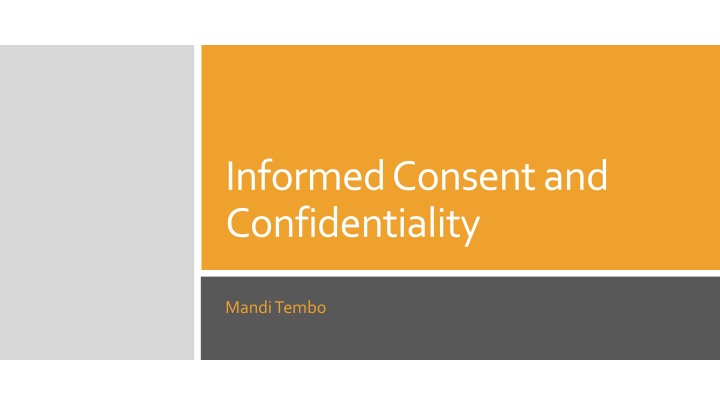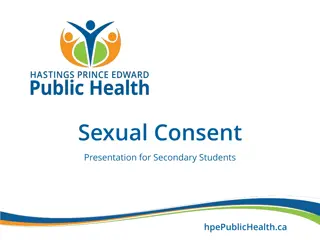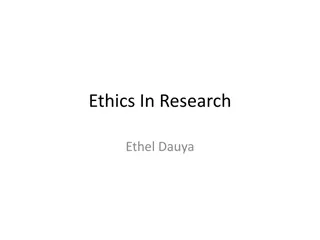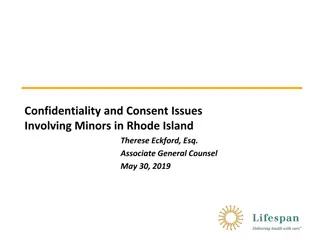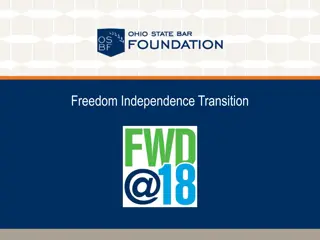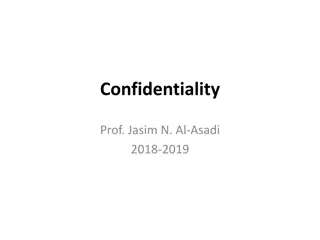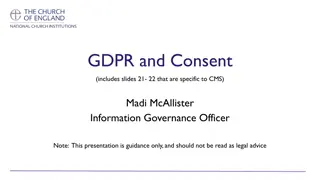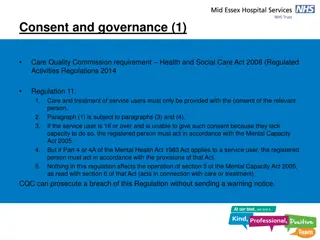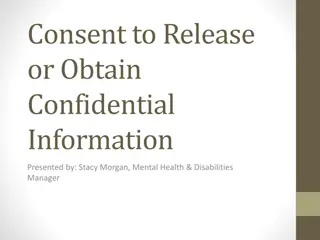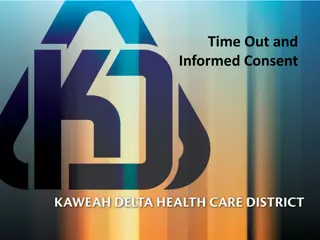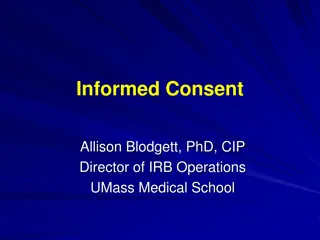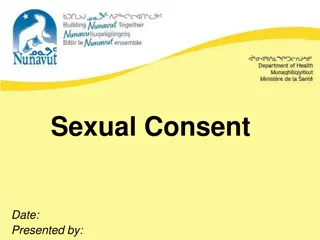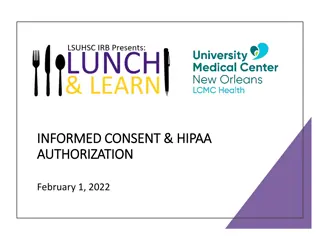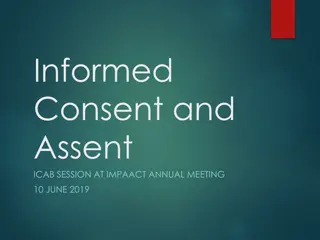Informed Consent and Confidentiality in Research
Informed consent is vital in research to ensure participants understand the commitments, benefits, and consequences. Confidentiality safeguards sensitive information. This content covers the key aspects of informed consent, who can provide consent, and the importance of protecting participant identity and data confidentiality.
Uploaded on Sep 13, 2024 | 0 Views
Download Presentation

Please find below an Image/Link to download the presentation.
The content on the website is provided AS IS for your information and personal use only. It may not be sold, licensed, or shared on other websites without obtaining consent from the author.If you encounter any issues during the download, it is possible that the publisher has removed the file from their server.
You are allowed to download the files provided on this website for personal or commercial use, subject to the condition that they are used lawfully. All files are the property of their respective owners.
The content on the website is provided AS IS for your information and personal use only. It may not be sold, licensed, or shared on other websites without obtaining consent from the author.
E N D
Presentation Transcript
Informed Consent and Confidentiality Mandi Tembo
Rational and voluntary permission given in full knowledge of the possible commitments, benefits, and consequences Defining Informed Consent In research, informed consent is given by a patient/participant to a doctor/community health worker/nurse for treatment/participation
Clear Information Disclosure Key Aspects of Informed Consent Informed Consent Comprehensi on Competence Voluntariness
Informed consent must be either documentedby written consentor by oral consentin language that is reasonably understandable. Obtaining Informed Consent Most researchers use a written form that the participants sign and date because there might be problems later on. One can never really predict the future and written proof is is very valuable and useful
Adults (persons 16 years old and over) Children (persons 15 years old and below) Who can and cannot give consent? Parents or Legal Guardians (Assent) Incapacitated individuals i.e. unable to understand the facts or nature of the situation due to drugs, alcohol, or a mental disability
A condition in which the researcher knows the identity of and sensitive information about a researchparticipant, but takes steps to protect that identity and information from being discovered by others. Confidentiality
A Go over information about the study and get her consent You are a counsellor for CHIEDZA and a young girl (13 years old) asks to be part of the study. What do you do? B Tell the girl she is too young to give consent C Ask her if she is sure that she wants to be part of the study and enrol her into the study
A The researcher Informed Consent is an important part of research that protects B The participants C All of the above
A Tricking the participant into agreeing to participate in a research project B Asking nicely, but not telling the participant what will happen to them if they participate Informed consent involves C - Giving a detailed description of potential risks and giving the option to decline up front D - Telling the participant about the risks of participation after they participate
